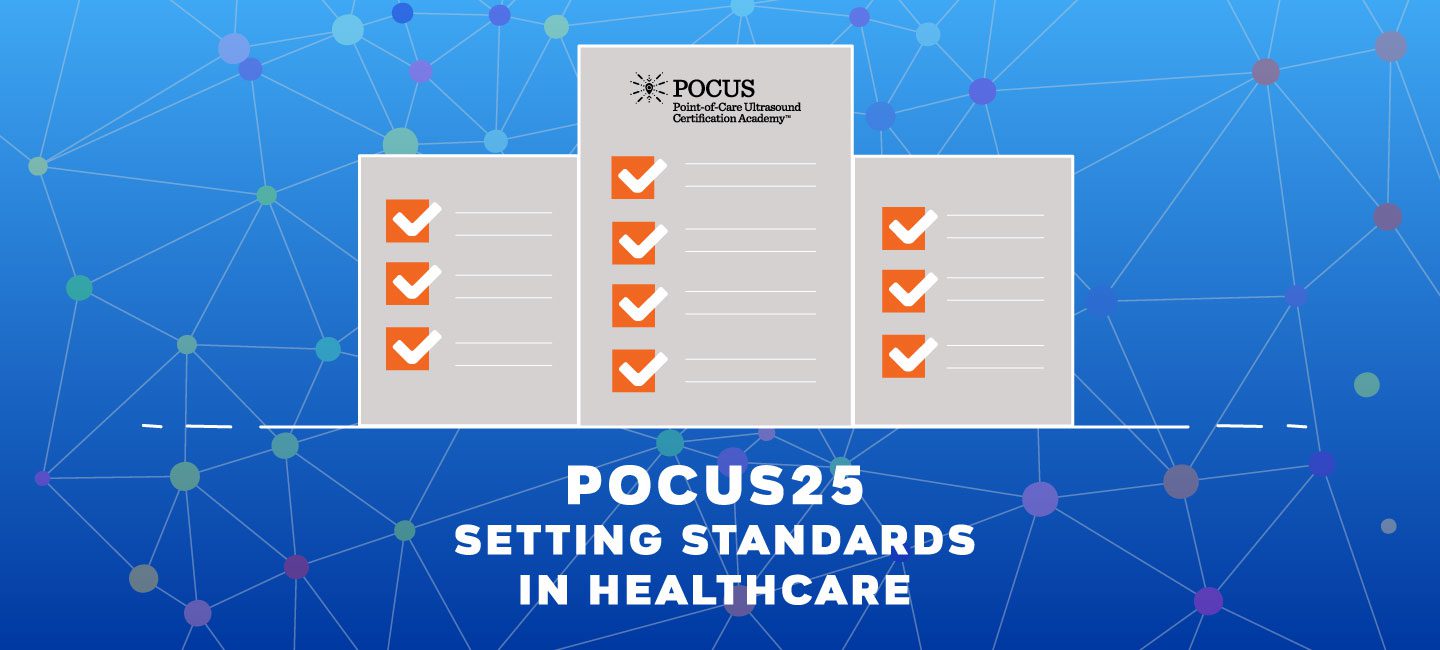A standard is a repeatable, agreed-upon way or approach of doing something. Standards are documented and contain specifics or other notable criteria intended for consistency of rule, guideline, or definition. They assist in ensuring the reliability and effectiveness of various goods and services used or provided to the public.

Standards are developed with a collective group of like-minded experts in a particular field. Together, the group provides a consensus as to what is vital and required to achieve precise goals or objectives for their discipline. These requirements and specifics deemed as critical to one’s work are the resulting standards to implement within a given field.
As it relates to healthcare, standards are essential to protecting patients and providing care. While patient safety is often a jurisdiction overseen through state licensing, standards add additional layers of protection for both the medical provider and patient alike.
In rural communities and developing countries, this is particularly true as patients have limited options when it comes to obtaining medical assistance. Therefore, it is incumbent on healthcare providers to know, adhere to, and even engage in setting standards that improve and advance medicine. This commitment ensures that whatever method, service, or modality that is utilized is fit for the scenario and applied with intentionality and purpose. The goal is to deliver care as specified and in the safest mode possible.
With access to and usage of point-of-care ultrasound (POCUS) on the rise, it is vital to establish proficient levels of performance and create uniformity across the medical field. These standards will set POCUS expectations for healthcare organizations, POCUS users, and the patients being treated. The assurance of this modality being integrated into healthcare appropriately and effectively will also increase.
POCUS25 is a method for seeing standards for POCUS come to life. The POCUS Certification Academy is facilitating the creation of a list of the core 25 POCUS procedures and protocols deemed essential for all POCUS users. These POCSU25 standards will help provide clarity and guidance on core POCUS educational curriculum. It will become a roadmap for healthcare professionals to sharpen the skill and expertise expected to be proficient at POCUS.
It is important to employ the process of consensus in developing standards. Building in this manner, grows in vitality when seeking a global reach — the scope and diversity size of stakeholder groups increases. Without community involvement, standards will ultimately lack clarity, detail, or specific criteria deemed significant to certain stakeholders.
For this reason, POCUS25, from the onset, is being created by the global healthcare community. POCUS’s reach is worldwide, and any standard put in place must include the insights of those most familiar with it. It is necessary to remove barriers so global POCUS users can provide experiential input.
If our current environment has taught us anything about healthcare, indeed, it is that there is a dire need for standards across the board. For the professionals who provide the care and for the ones who receive it, standards are a protective measure that cannot be overlooked.
Join your community in elevating the profession and transforming care across the globe. Complete the POCUS25 survey and help shape medical history.
For questions regarding POCUS25, please contact the POCUS Certification Academy at pocus@Inteleos.org or review our POCUS25 FAQs.
Looking for additional inspiration? Sign up for our POCUS Post™ newsletter to receive monthly tips and ideas.





















